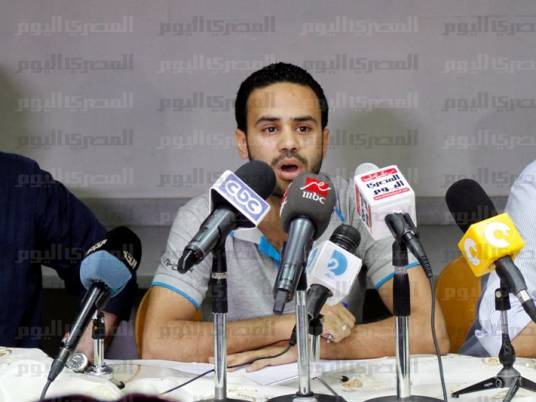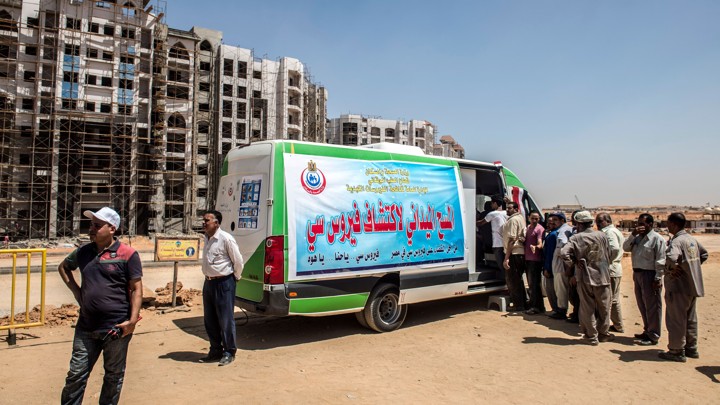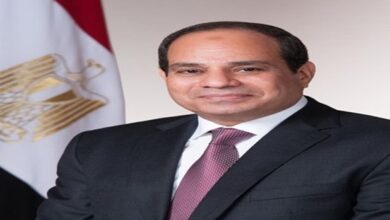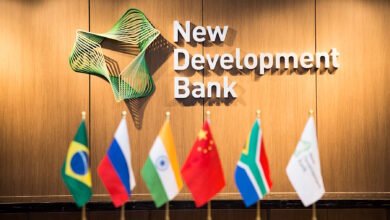
Tamarrod founder Mahmoud Badr said that if security conditions in Egypt do not stabilise soon then he might back Defense Minister Abdel Fattah al-Sisi if he runs for president.
If however, security conditions stabilise, Badr said he would support a civilian president for Egypt.
The leading Tamarrod member added that he expected unrest to subside.
According to Al Arabiya news website, Badr said that the army is a main partner in the 30 June revolution.
The movement, however, distanced itself from its leader's comments about a possible presidential bid by Sisi and altered Badr's statement.
"Announcing support for a candidate at a time when there is no established plan for elections, no constitution or any official candidates, would be an uncalculated, unreasonable step," Mohamed Shahine clarified via Facebook.
"Our next, primary battle before presidential polls is the constitution," Shahine added.
In the same interview, published on the channel's website on Thursday, Badr said that he expects the Muslim Brotherhood to take part in planned parliamentary elections but not in presidential polls.
Badr said that he expects Tamarrod to continue to play a leading role in Egyptian politics, adding that the country still faced challenges.
Tamarrod will transform into a political party aiming to unite Egyptians, he said, adding that he might become the president of the party and run for president when he reaches the legal age for nomination, which is 40.
Tamarrod will not repeat the same mistakes made after the 25 January 2011 revolution when youth groups became distanced from the people, Badr claimed. Tamarod carries out daily work organising talks and rallies in villages across the village, he stressed.
Asked if he fears that the 30 June revolution could be hijacked, like some claim the 25 January uprising was, Badr said: "The comparison is not fair because there is a difference between what happened on 25 January and what happened on 30 June 2013.
"In the first, the people took to the streets and then a coalition of young people was formed, that spoke in the name of the revolution. This time there was a group of young people who shared an idea around which the people rallied. It is the people who lead the 30 June revolution."
He denied that Islamists were being marginalised through the constitutional amendment process, adding that there are Islamist representatives in the 50-member committee which will amend the constitution. The Nour Party is taking part in the process and its members have insisted on keeping Article 219 of the suspended constitution even though, Badr said, they are using Islamic Sharia and identity as a cover.
Badr added that he is worried about the current position taken by the Nour Party, saying it has hampered the consultations to form a cabinet.
"Egyptians do not need religious parties to emphasize their Arab Islamic identity. Islam entered Egypt with the arrival of Amr Ibn al-Aas, not Mohamed Morsy or Yasser Borhamy."
Regarding reconciliation with the Muslim Brotherhood, Badr said that the Egyptians state is handling this and that if he is invited to a reconciliation session, he would attend it.
Badr said that for reconciliation to be achieved, the Brotherhood should "apologise to Egyptians and respect the legitimacy of the 30 June [uprising] and the events that followed and to commit to non-violent political engagement."
"Everyone who spilled Egyptian blood should be tried," he argued.
Asked about allegations that Tamarod has collaborated with security and intelligence officials, he said: "The same accusations were leveled at several other political powers. Tamarod's headquarters was not protected by anyone when it went on fire. Whoever has evidence against Tamarod should submit it to the public prosecution."
Asked about the article on political isolation in the suspended constitution, Badr said, "The Brotherhood fooled us with this article. Those who were isolated do not exceed 1,000 members of the [dissolved] National Democratic Party (NDP) and most of them are in prison."
"There must be a political isolation law for members of the NDP and the Brotherhood, however, isolating the Brotherhood would lead to more extremism."
He added that the Egyptian people, rather than any laws, isolated the NDP and the Brotherhood and will make good choices for the future parliament.
Badr expressed appreciation for the positions taken by Saudi Arabia and the United Arab Emirates in supporting the Egyptian people, describing them as "ïncredible and historic."




